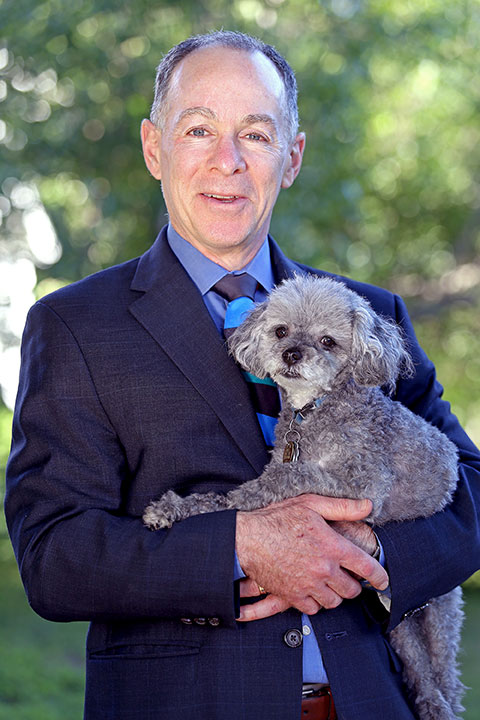
Lifestyle Medicine Is a “Team Sport”
Edward Phillips, MD, is the founder and director of the Institute of Lifestyle Medicine (ILM) and assistant professor of physical medicine and rehabilitation at Harvard Medical School. A fellow of the American College of Sports Medicine, Phillips serves on the executive council that developed the organization’s Exercise is Medicine™ global initiative. He is an active clinician and researcher who speaks and consults nationally, and is instrumental in guiding a broad-based effort to reduce lifestyle-related death, disease and medical costs through clinician-directed interventions with patients.
The work has earned Phillips and the ILM the Community Leadership Award from the President’s Council on Fitness, Sports and Nutrition. He regularly appears in national media—including
Good Morning America,
the
Wall Street Journal,
ESPN radio and
Time
magazine—as an expert in the field.
ACE: What inspired you to create the Institute of Lifestyle Medicine? Can you describe some of the organization’s goals?
Edward Phillips:
The Institute of Lifestyle Medicine was founded in 2007 within the department of physical medicine and rehabilitation at Harvard Medical School to help close an educational gap in the training of health professionals. Simply put, the major causes of the majority of healthcare costs, noncommunicable chronic diseases and premature deaths are several lifestyle behaviors: physical inactivity, poor diet and tobacco use. Yet, physicians and other healthcare professionals are not trained in how to help patients adopt and sustain improved health behaviors.
The ILM is a nonprofit professional education, research and advocacy organization uniquely positioned to ignite clinician involvement in lifestyle medicine. The ILM offers concrete tools and training to healthcare professionals, conducts research to demonstrate the efficacy of lifestyle interventions, and is creating a model for national adoption of lifestyle medicine. Through the facility, we are able to advocate for changes in our healthcare system by empowering clinicians to facilitate behavior change and stimulate a culture of health and wellness for their patients.
ACE: What do you feel is the greatest challenge that physicians and other healthcare professionals face when it comes to leading patients to sustainable, healthy lifestyle change?
Edward Phillips:
Physicians and other healthcare professionals are not trained in how to help patients adopt and sustain improved health behaviors. The professionals themselves often lack the knowledge, skills, tools and personal commitment to follow those same beneficial behaviors. The ILM provides the knowledge through online and live programming; trains clinicians in the skills needed to engender sustainable change; supplies tools to be used in clinical care; and encourages physicians and other healthcare professionals to personally adopt and sustain healthier eating and get adequate physical activity.
ACE: Why do you think more healthcare professionals do not prescribe exercise or other lifestyle-related behaviors to their patients? What impact do you feel it would have if more physicians adopted that practice?
Edward Phillips:
We know that 80% of chronic disease can be prevented with behavior modification, specifically not smoking, maintaining a healthy weight, engaging in physical activity and adhering to a healthy diet, according to the
Journal of Internal Medicine.
Yet, despite those findings, less than half of physicians in the United States routinely provide specific guidance on nutrition, physical activity or weight control (American Medical Association 2011).
There’s no curriculum for lifestyle medicine, very little for nutrition and a dismal amount of exercise prescription education in undergraduate medical school, so the gap in patient care may be due to insufficient training.
What we’re trying to do with the Institute of Lifestyle Medicine is fill that educational gap with live, online courses through Harvard Medical School. To date, we’ve reached 10,000 clinicians in more than 115 countries. We’ve published papers, books, chapters and patient health-education materials. We’ve also gained national media exposure through
Time
magazine, the
Wall Street Journal,
the
Boston Globe
and
Good Morning America.
If we can reach more physicians and healthcare providers with education that will help them instill lifestyle behavior modification in their patients, then we’re providing a means to achieve a healthier population.
Advocating and supporting improved health practices in physicians and other healthcare professionals should translate into improved health behaviors in patients.
ACE: How do you feel health coaches and other well-qualified fitness professionals can contribute to the effectiveness of the healthcare team?
Edward Phillips:
As part of our training of health professionals, we clearly impress on them that lifestyle medicine is a “team sport.” Physicians and even nurses have a relatively short amount of time and limited expertise in consulting patients on lifestyle change. So there is a clear need to integrate members of the team who have the appropriate training and adequate time to remain in touch with the patients. The team should therefore include credentialed, well-qualified health coaches and fitness professionals.
ACE: What practices by members of the healthcare team do you feel need to happen in order to decrease the impact of obesity and chronic disease?
Edward Phillips:
The shift from the current system of volume-based reimbursement toward value-based care—rewarding clinicians whose patients improve their health behaviors (e.g., by increasing physical activity) and their health outcomes (e.g., by lowering blood pressure, HbA1c, body mass index, etc.)—will refocus the healthcare team in a way that can decrease the incidence of noncommunicable chronic disease and obesity.